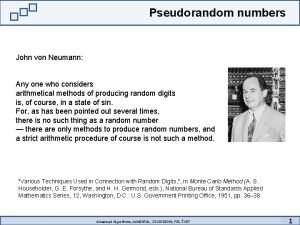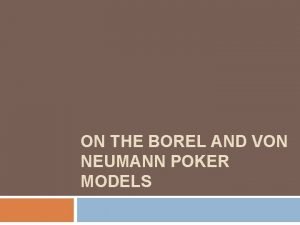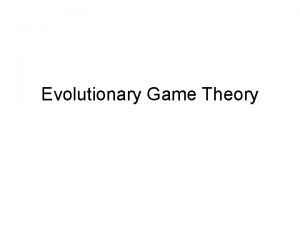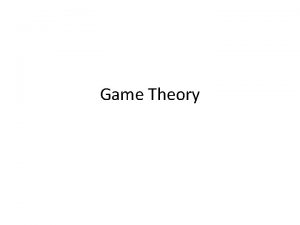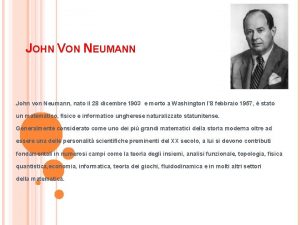Game theory John von Neumann and Oskar Morgenstern




- Slides: 4

Game theory • John von Neumann and Oskar Morgenstern Theory of Games and Economic Behavior (1944) – How do humans make rational decisions between alternative courses of action. • John Nash (1950) – concept of a "Nash Equilibrium" (NE) organizing concept under Game Theory • Applied to biology (evolution/ecology/group survival): rational decision replaced by concept of fitness – Lewontin, R. C. (1961). Evolution and theory of games. J. Theor. Biol. 1: 382 -403 – Maynard Smith, J. and Price, G. R. (1972), The logic of animal conflict. Nature 246, 15 -18. – Maynard Smith, J. 1974. “The theory of games and the evolution of animal conflicts, J. Theor. Biol. 47, 209 -221. – Maynard Smith, J. 1982. "Evolution and the Theory of Games“. Cambridge Univ. Press, Cambridge, UK. – Reichert, S. E. and Hammerstein, P. (1983). Game Theory in the ecological context". Ann. Rev. Ecol. Syst. . 14: 377 -409.

Von Neumann

Bayesian decision theory • Individual has "prior opinion" of the possible states of the world – Previously experienced distribution of qualities of food patches, or qualities of potential mates. • Animal uses sampling information to arrive at a "posterior opinion“ (quality of food or average qualities of mates in a year). • Bayesian model predicts how animals combine previous experience with sampling information to make optimal decisions. • Animals may have "prior opinions“ from own individual experience, or from adaptation to the environment experienced by previous generations.

Clutton-Brock Parental care Clutton- Brock’s categories Social system Mating system M F

